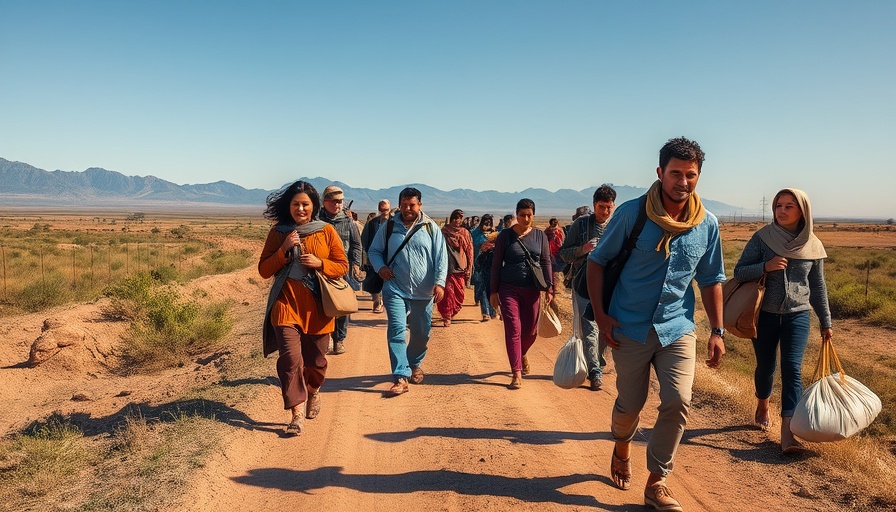
A Timely Meeting with Afrikaner Refugees: Understanding Their Journey
In a significant engagement that underscores the evolving landscape of immigration in the United States, Deputy Secretary of State Christopher Landau and Deputy Secretary of Homeland Security Troy Edgar recently met with newly arrived Afrikaner refugees. This meeting is not just a diplomatic formality; it’s a reflection of the challenges and triumphs faced by a community seeking peace and stability.
The Historical Context of Afrikaner Immigration
The Afrikaner population, primarily descended from Dutch, French Huguenot, and German settlers, has faced a tumultuous history in South Africa. With the political climate changing, many Afrikaners have left their homeland seeking refuge from perceived threats to their safety and livelihoods. In recent years, various factors, including changes in agricultural policies and increasing violence, have prompted this wave of immigration. Understanding this backdrop is crucial for comprehending the complexities surrounding their resettlement in the U.S.
Why This Meeting Matters: Social Connections and Community Support
The meeting between the U.S. officials and Afrikaner refugees holds significant social value. As these individuals arrive with their histories and cultural identities, their integration into American society poses both challenges and opportunities. Community organizations are pivotal in guiding newcomers, facilitating language skills, and fostering connections that can help alleviate the sense of isolation that immigrants often feel.
Future Perspectives: The Evolution of U.S. Immigration Policy
This meeting signals the U.S. government’s commitment to reassessing its immigration policies as dynamics shift globally. With an increasing number of individuals seeking refuge from violence and persecution, discussions focused on accommodating vulnerable populations are more relevant than ever. The challenge lies in balancing national security concerns with humanitarian obligations, a point likely discussed during the meeting.
Public Response and Diverse Perspectives on Refugee Resettlement
Public opinion on immigration and refugee resettlement is often polarized. For some, it offers hope and a second chance at a peaceful life, while others voice concerns over the strain on resources and integration challenges. It is essential to explore these diverse perspectives to foster a balanced conversation that promotes understanding and actionable policies.
Insights into Current U.S. Immigration Trends
This meeting comes at a time when national attention is focused on immigration as a core issue within U.S. politics. Recent statistics reveal that the number of asylum seekers and refugees has escalated, prompting renewed discussions in Congress and broader society. Keeping informed about these trends is vital for anyone concerned with the evolving nature of U.S. immigration policies.
As we look ahead, the implications of such meetings could steer the debate on immigration reform, impacting not only the Afrikaner community but also influencing how the U.S. approaches broader refugee crises worldwide. Engaging in these discussions is crucial for advocating effective policies that respect human rights while ensuring national security.
In conclusion, the U.S. government’s willingness to meet with newly arrived Afrikaner refugees highlights a significant moment in addressing immigration challenges. It provides an opportunity for community growth, cultural exchange, and a chance at rebuilding lives interrupted by conflict. As we continue to monitor these developments, let’s advocate for continued dialogue and engagement.
 Add Element
Add Element  Add Row
Add Row 



 Add Row
Add Row  Add
Add 


Write A Comment